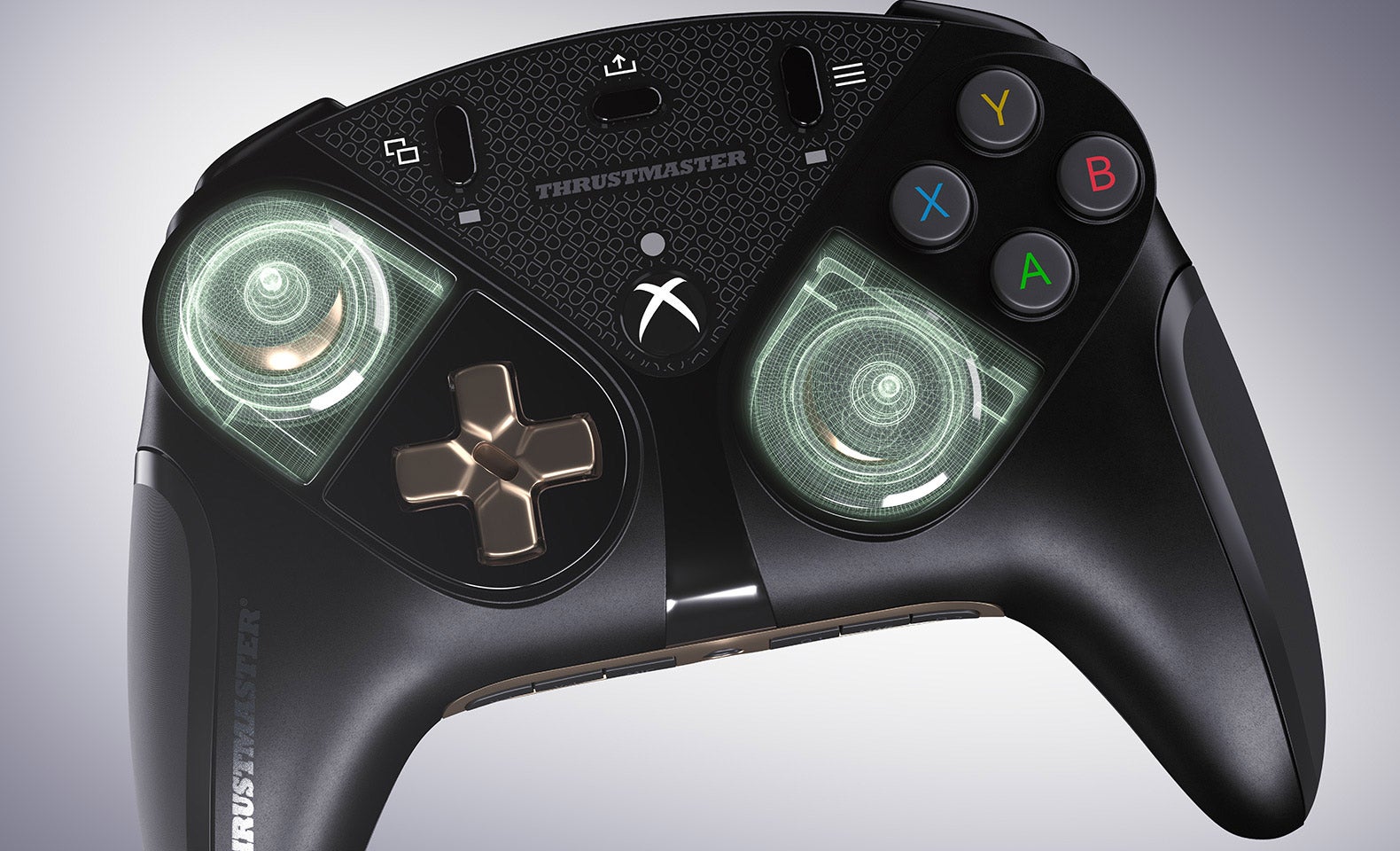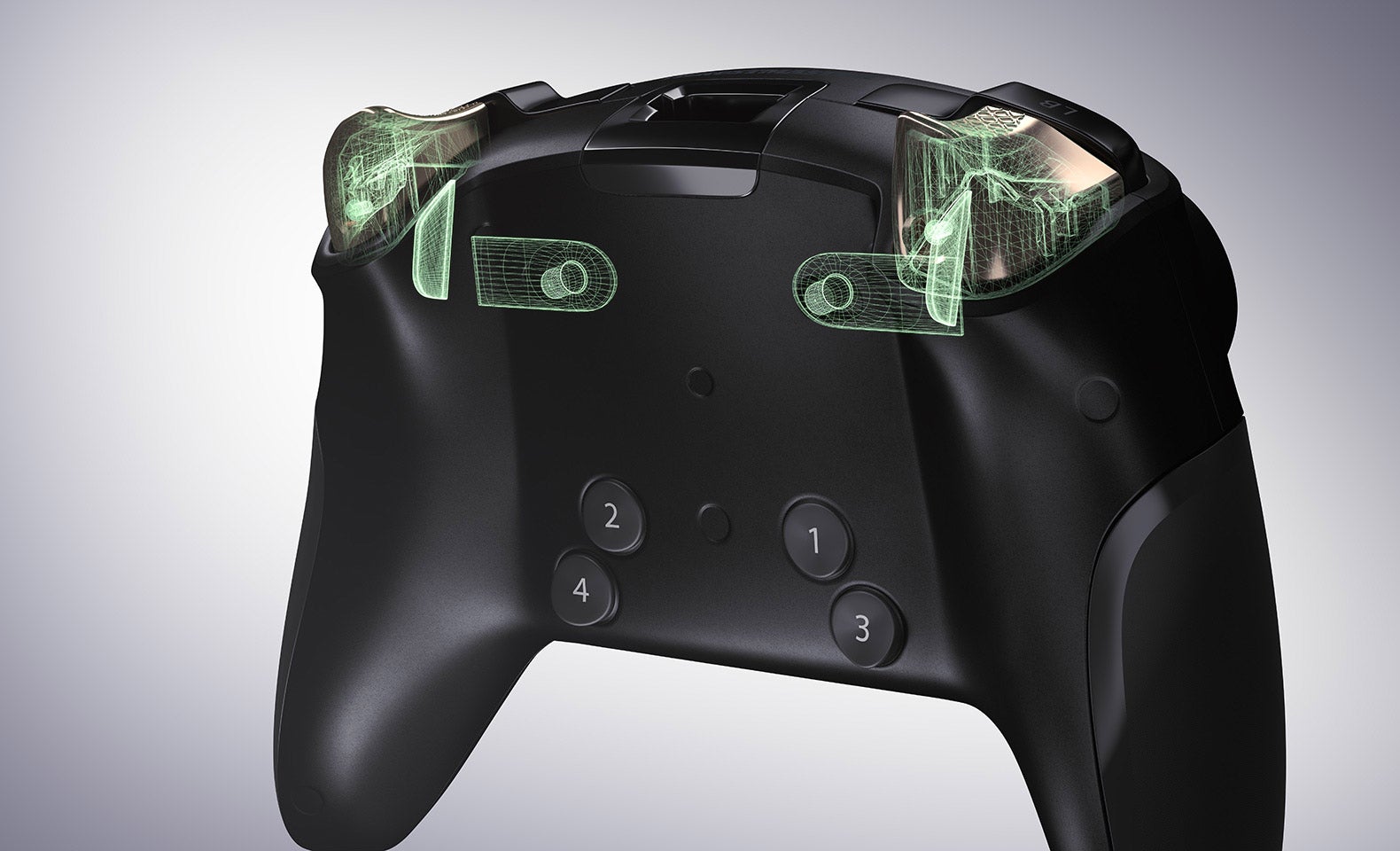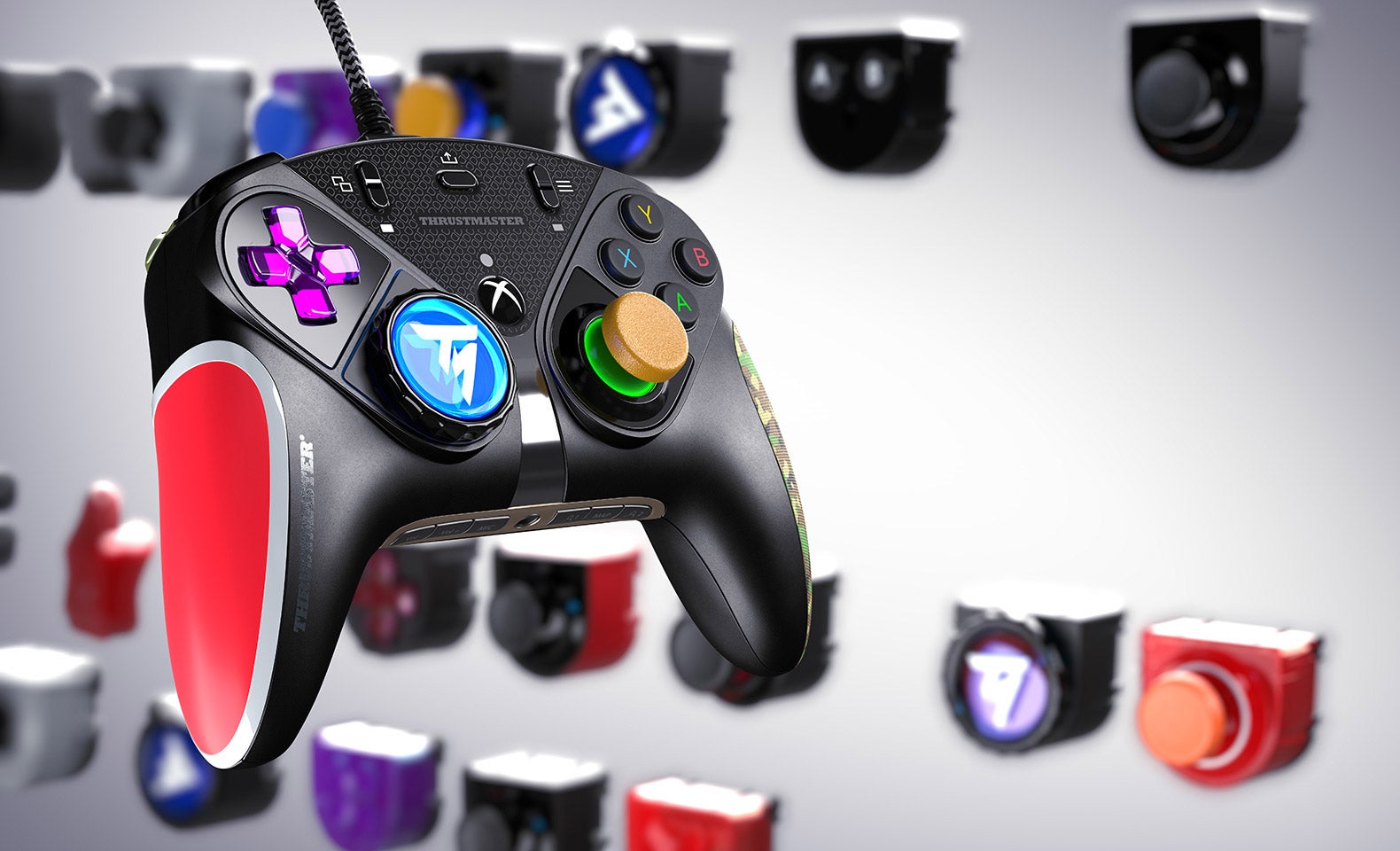Xbox and PlayStation have their official offerings, of course, but now third parties are also getting in on the action. Thrustmaster’s entry into this lucrative arena is the eSwap X Pro, a premium pad with a wide range of features that aims to outdo the official Xbox alternative with some unique features - though there’s a major caveat there we’ll come to in a moment. Anyway, from the moment you first lift it out of the box, it’s clear that the eSwap X is a premium piece of kit. It’s weighty, firm, and lush-feeling. Even the box goes some way to try to sell that premium feel, with a magnetic opening mechanism and a soft interior to gently hold the controller and its various add-ons in place. Before we get into the controller’s big gimmick and selling point, I actually think the most interesting thing to talk about here is how the shape of the controller differs compared to what’s become pretty standard on Xbox. Through gentle iteration from the 360 up until now, Microsoft has managed to pretty much perfect that particular style of controller, and most imitations come up pretty poorly as a result. So Thrustmaster has gone the other way, with a chunkier controller design with both a larger main body and elongated grips compared to the official offering. This is a matter of taste, of course, but as someone who is fairly long-fingered, I like it. I’ve never had an issue with the Xbox controller anyway, but this is different in a pleasing way, and I can immediately see how for certain styles of game this shape would be preferable and less of a strain. So, that’s good - it’s a good shape, especially for those of us with larger hands. It’s probably not the best controller for children - but no child should be paying $160 for a controller anyway. This is for grown-ups with money to burn. That’s established. So, what of those bells and whistles? Well, the clue here is in the name. The eSwap is all about being able to swap around controller components. The major element of this is the D-pad and analogue sticks – which can be lifted out of the controller with relative ease and snapped back in place in whatever configuration you choose. If you’re playing an old-school platformer or fighting game, for instance – or just someone who prefers the PlayStation style layout – you could flip the d-pad up into the top left position, for instance, and have two symmetrical analogue sticks below. Equally, you could have both analog sticks on the left, if you’re some sort of absolute freak. The choice is yours. There’s also an aesthetic element to this. You can move stuff around for utility, but you can also buy other bits in what Thrustmaster generously calls “an unlimited modular system at the crossroads of design and performance”. What this really means is that if you want to buy blinged-out sticks, you can. A different-shape or style of d-pad is also theoretically possible. Panels on the side of the controller also clip off in the same way - and so you can replace the plain black with something more artistic if you choose. All of these swappy elements are held in place by magnets, and they’re powerful, firm-holding ones. I did a couple of drop tests on the controller and found, surprisingly, that no pieces flew away. If you drop an Xbox Elite analog stick heads and the d-pad fly across the room. Not so here. In fact, they’re held so firmly the controller ships with a specialist tool for extracting the d-pad. The other features of this controller are, I feel, fairly standard in this class. There’s three-phase settings for each of the triggers which physically lock how deeply it can be pulled - so if you want a responsive hair trigger, you just set that to be a more shallow squeeze. There’s also four additional programmable buttons on the back of the controller - though I think these are small and poorly placed when compared to the paddles on the Xbox Elite pad. There’s also a headphone jack on the base of the controller, complete with volume up and down and microphone mute buttons – useful to have on the actual controller. Three more discrete buttons allow you to set and flip between control mapping presets. This all sounds good, though, and is pretty good value for less than the Elite controller. Except – here’s that caveat – this is wired. The wired solution is as elegant as it can be, with a smart design that ‘sinks’ the wire into the controller body once plugged in, plus a 3 meter cable that’s a nice, braided, premium thing that won’t fray or break easily – but you still have to accept that despite being an officially-licensed Xbox pad, you’ll be tethered to the console. Thrustmaster’s justification for this is simple enough to understand – this is a pad for those serious about gaming, and worried about lag. As a result, wired made sense. In fact, it all lines up – in the hands it honestly feels like a controller built for shooters first. I’m not an enormous fan of the shallow-feeling face buttons, for instance – but the triggers and bumpers are pretty much sublime. That’s shooter and action game led design, and that’s okay – the eSwap is honest about what it is. Everything about its design screams esports credentials. Even the name. How does it ultimately stack up against its formal rival, the Xbox Elite Series 2? Well, I think the answer is complicated. It depends what you’re after, in many ways – there are things each does better than the other. The eSwap’s stick and d-pad flipping gimmick is a huge selling point, however, especially for those who prefer a symmetrical layout or simply play a lot of games they prefer to use the d-pad for. It’s a great, quality product – and has one feature that is massively unique.



